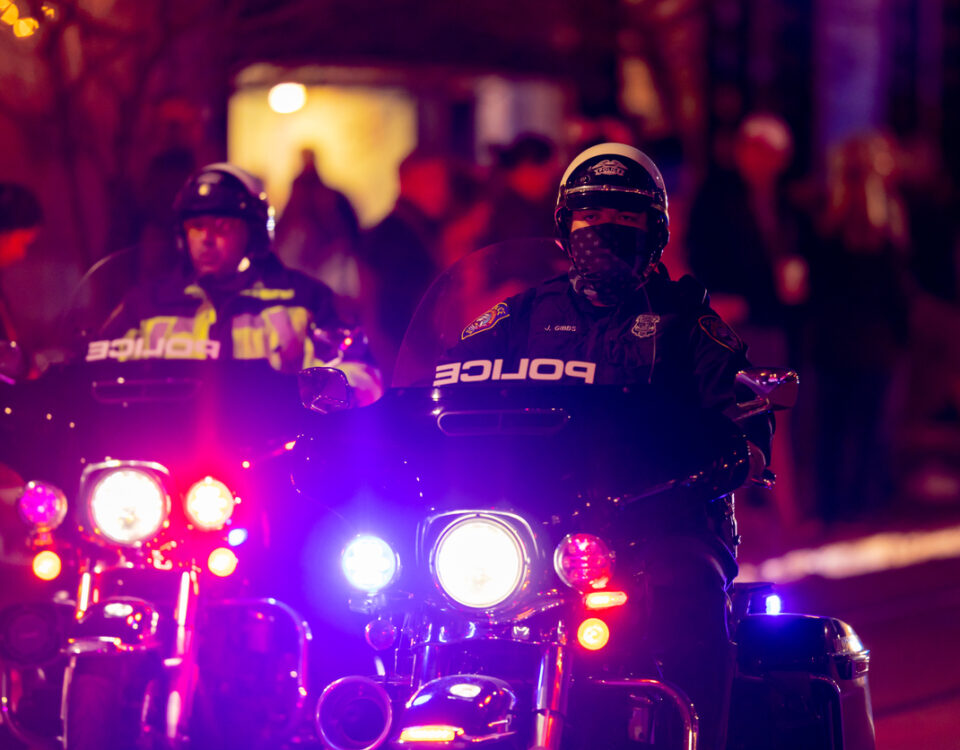Addressing Police Reform: What it Could Look Like

Preventing Police Misconduct Lawsuits
July 6, 2020
Public Officials: Navigating Defamation & The Media
July 21, 2020Addressing Police Reform: What it Could Look Like
In recent years, the coverage of police brutality, both in the mass media and through amateur civilian footage, has been a major wake-up call for not only Americans but also people around the world. With the recent deaths of George Floyd, Breonna Taylor, and Rashard Brooks, among many others, a new light has been cast on what many communities of color already know -that policing and criminal justice systems aren’t always operating fairly. In response to these events, there have been various calls for action for police reform.
In response to Mr. Floyd’s death on Memorial Day of this year, local, state, and federal government action has been growing as sweeping police reform bills have been outlined and already passed at some levels. For example, the House of Representatives recently passed a bill that would crackdown on excessive police force and ban chokeholds, enforce national transparency standards and push accountability for officer misconduct with a national database to track offenses.
But while this may be a significant step in the right direction, there is no guarantee of change. Transformative change will require leadership throughout local, regional, and federal levels to address what police reform could look like in police departments from coast to coast.
What Does Police Reform Look Like?
At The Local Level
On average, police departments spend more than 100 hours of training devoted to force training, such as weapons, detaining, and self-defense. Conversley, only eight total hours of conflict de-escalation training are provided. Therefore it’s evident that a complete transformation and re-training effort need to be implemented.
To a certain degree, public officials (i.e., mayors) and community members, have tussled over a consensus around a roadmap to police reform. From accountability to discipline to training, police reform is a layered and complicated endeavor that should involve many voices and ideas.
Some of these principles have already gained national attention, including demilitarizing the police, defunding the police, providing police recruits with training in racial bias, and conflict mediation. This makes police departments more accountable to communities through civilian oversight and independent investigations of police misconduct.
Local officials, such as mayors, should also institute policies that work on scaling back over-policing, especially for minor offenses that criminalize too many communities and add fees and fines to households that are already impoverished. Local governments must not only put work into fixing broken municipal court systems, but they can also cut back decriminalizing minor offenses that are not related to public safety. For example, the city of Minneapolis recently decriminalized two non-violent offenses, including spitting and lurking.
Defunding the Police
While the notion of defunding the police has gained a lot of attention during Black Lives Matter rallies, most responses are knee jerk, not fully understanding what it entails. Instead of completely shedding funds from and dismantling police departments, defunding the police refers to the effort to cut back spending and budgets in police departments, not depleting or disbanding them altogether.
Local governments can help their communities out by reorganizing their budgets to meet the needs of their communities. Instead of pouring ever-increasing sums of money into city police budgets, local municipalities can shift funding to things like job development, access to healthy food, affordable housing, public transportation, better schools, and community health care services.
In New York City, for example, the police budget was $6 billion for 2020. After the protests in June, the city updated its budget for 2021. It included a $1 billion cut in police funding, choosing instead to reallocate those funds to things like the Department of Education, the Department of Health, and the Department of Homeless Services.
Better policing and police reform won’t stop all crime or instances of police brutality. There are many other issues, including lack of jobs and housing, that also have an impact. But police, if they are to become trusted members of a community, can have a significant positive effect. That’s why a mixture of transparency, accountability, and community cooperation are all critical. Together, they signal the justice system stepping up to keep people safe. If the police departments in the U.S. improve their policing strategies, they can demonstrate that they care about the wellbeing of those they are hired to protect and serve.
About PGUI
Professional Governmental Underwriters, Inc., is a full-service risk management company dedicated to assisting public, educational and non-profit entities in the management of their professional liability exposures including educators liability insurance. We are dedicated to providing state-of-the-art professional underwriting management and loss control advisory services on behalf of our designated carriers. For more information, call us toll-free at (800) 586-6502.


